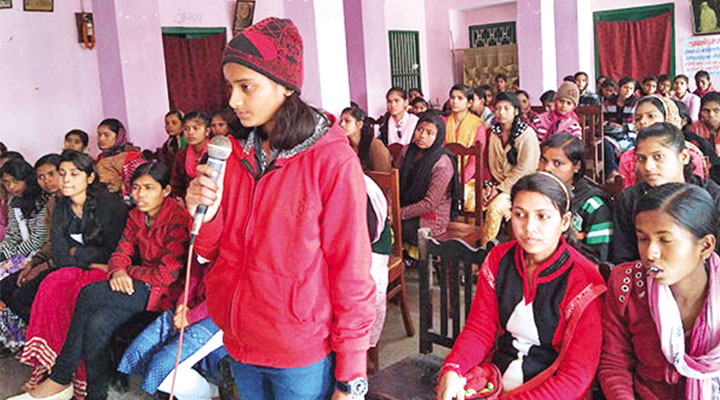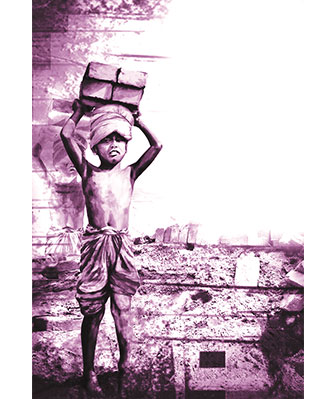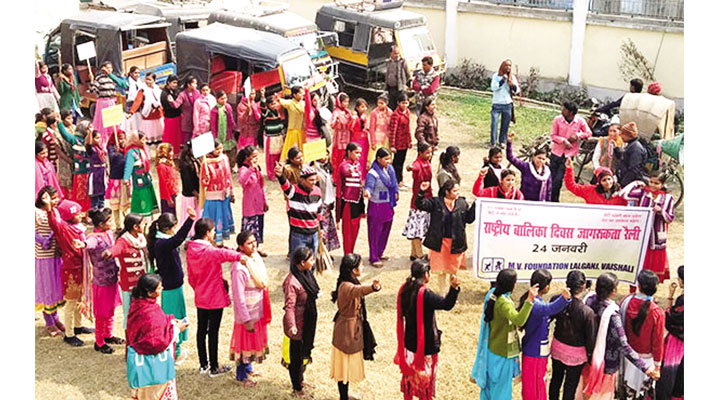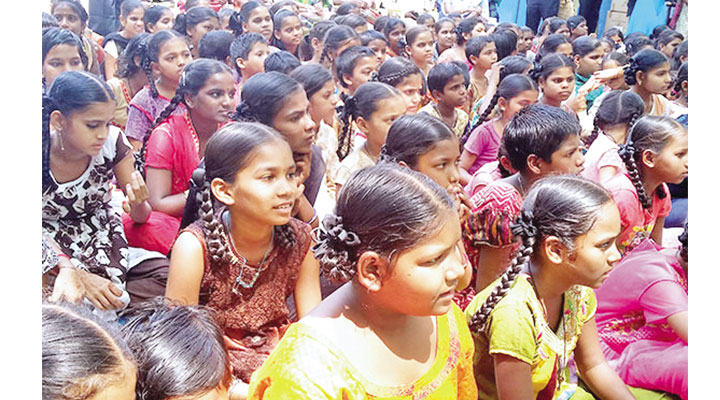Voice of Reason

Anti-child labour activist Prof. Shantha Sinha is among the earliest voices in India fighting for the rights of children to primary education. Her journey is traced by Rashmeet Kaur Chawla

When the history of the 21st century is written, there will be a few names that will have a special place in the books written for the future generations. One such name, we believe, will surely secure a spot, is anti-child labour activist, Professor Shantha Sinha―a woman who is among the earliest voices in India fighting for children’s right to education.
Founder of Mamidipudi Venkatarangaiya Foundation, popularly known as MV Foundation, Sinha became the first chairperson of the National Commission for Protection of Child Rights, NCPCR set up in March 2007. The Padma Shri recipient, Sinha retired as a professor of Political Science from Hyderabad University.
Protecting rights
Growing up in Hyderabad and Delhi, Sinha’s exposure to India’s rural areas was limited. As a newly appointed lecturer at the university, Sinha pushed herself to learn about the struggles and challenges of rural India. “One of my friends was working toward the release of bonded labourers. I started working with her. It was that time when I found out that per cent of them were children,” says Sinha, who was shocked that nobody at that time was speaking about those children being among the labourers. “There was no awareness about the rights of those children, especially the right to education. I decided to build a social norm dedicated to children,” adds the activist.
There was no awareness about the rights of those children, especially the right to education. I decided to build a social norm dedicated to children.” – Prof. Shantha Sinha
Back to school
In 1991, MVF began working actively on the issue of child labour and got released the first 30 children from bonded labour in Ranga Reddy district of Telangana. To date, the foundation works hard to ensure that children, especially those from poor and marginalized communities utilize their right to education. “No child must work and every child must attend full-time formal day school,” says the educationist.
Unshackling children
Presently, Sinha’s foundation is actively involved in programmes for the elimination of child labour through universalization of elementary education in 13 districts of Andhra Pradesh covering more than 6000 villages in 137 mandals. “Education for all and the elimination of child labour are closely connected. We focus on the entire area they operate from to support all children, whether they are currently in school or not. We have successfully moved over one million children from labour into formal education up to class 10,” shares the activist.

Prof. Sinha’s foundation has brought together over 2,500 government school teachers under the ‘Teachers Forum for Child Rights’.
Training the little minds
While education is a pillar of an individual’s upbringing and growth, the teachers impart knowledge are equally essential. The foundation has brought together over 2,500 government schoolteachers under the ‘Teachers Forum for Child Rights’. “The forum works to ensure that every aspect of learning supports children’s rights and education,” Prof. Sinha clarifies.
It takes a village…
To eliminate child labour and promote a universal education system, the foundation has implemented several key initiatives including Residential Bridge Course Camps and Community Mobilization. “While the former helps older children catch up on their education and transition into formal schooling, the latter is focused on engaging with parents, local leaders, and community groups to build support for children’s education,” explains the recipient of the Ramon Magsaysay Award.
Every child matters
Apart from several initiatives to protect children’s right to education, the foundation regularly conducts Enrolment and Retention Drive to ensure all children are enrolled for in-house schooling. Through the Teachers Forum for Child Rights, the foundation time to time establishes Child Rights Protection Committees in different villages to monitor and safeguard children’s rights and provide support for migrant families to ensure their education is not disrupted.
“The work is never-ending. As much as we are progressing as a nation, the children who are the most innocent citizens of the country have no protection for their rights. We are determined to ensure every child gets basic education,” says Sinha who was recently awarded with the National Award for Child Welfare from the Government of India.



